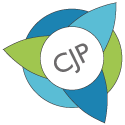Driving Death Case
My apologies for the delay in writing, but hopefully you subscribe to the theory that it is better late than never.
I wish to thank you for involving me in the Collaborative Justice Project. Its emphasis on the restorative aspects of justice offers a marked and positive contrast to the generally negative experience provided by the criminal justice system for the parties involved.
The criminal process is adversarial by design and, thereby, actively discourages communication being established between the victims and the perpetrators of crime. There is no attempt at ‘bridge-building’ or otherwise helping the parties to work together to mitigate the damage suffered. It is the State pitted against an accused and, consequently, with such a perceived imbalance, there is a focus on the needs and preservation of the rights of the accused. The system, as it currently exists, offers little opportunity for the voice of the victim to be heard. This can have the effect of making the victim feel marginalized and exacerbate the sense of injury.
I believe the importance of victims being given an opportunity to explain their feelings and position, directly and indirectly, to the person responsible for the harm done to them is inadequately understood. In my experience, victims have an overwhelming need to know that the person responsible for their suffering understands the nature and extent of what has been inflicted on them. They need to see some comprehension by the perpetrator of the degree and scope of the harm done. For many, recognition and an indication of remorse are far more important than punishment. Being able to communicate in such a fashion undoubtedly can speed and facilitate the healing process and, thereby, reduce the overall harm suffered.
From my perspective, the Project made it possible to create positive outcomes from my father’s tragic death. It was positive for me personally as it enabled me to meet and talk with Y. T. and to get to know something of him as a man rather than simply an impersonal accused. Particularly in the case of impaired driving offences leading to death, there is a tendency for the accused to be demonized. I was able to gain an appreciation of the circumstances that led him to commit the act that brought our lives into collision. More importantly though, I was able to see that he fully understood the harm he had inflicted on my family and that he was genuinely sorry. Once that recognition had been communicated, and an apology accepted, it made it possible for us to work together towards a common goal: that of attempting to salvage something positive from the whole tragedy. None of what transpired would have been possible within the context of the criminal justice system. It was only due to the existence of the Project that this opportunity was afforded to both Y. and I to create some form of positive outcome from, what would otherwise have been, a completely negative experience for all those involved. In my particular case, being given the opportunity to create something beneficial helped me immeasurably in coming to terms with the fact and nature of my father’s death.
I believe that just as the negative aspects of serious crime ripple out to touch the lives of so many, so do the positive aspects, made possible by the Project. I believe that by enabling Y. and I to work together in the manner that we did, the Project gave something positive back to the community as a whole. Arguably, through our presentation on the consequences of impaired driving to a group of impressionable young adults, the Project may have helped my father’s death save someone else’s life in the future. Hopefully, it will be something we can repeat in the future. Even should this prove not to be the case, the tragedy of my father’s death was transformed from an entirely negative event into one that did lead to something positive and restorative. Not only did it bring comfort to me and my family but people who heard about what we had done saw it as a positive and practical response to dealing with impaired drivers who have killed. I found very few people who saw incarceration alone as any real solution.
Finally, I believe that the Project has helped Y., too. By taking the very difficult step of placing himself openly before the judgment of members of the community, Y. appeared to gain assistance in his struggle to come to terms with what he has done. It appeared that it made him feel more positive about himself. By participating in the Project he took active steps to confront the realities of what he has done and begin to come to terms with them. It also demonstrated to himself, the families involved and the greater community his genuine remorse and desire to make whatever amends were open to him.
Put simply, the Project has helped my family, Y., the greater community, and me. In so doing, it has done much to heal and reduce the damage done. It offers to those who wish to take advantage of them lines of communication between the parties most directly affected. This can make all the difference to coming to terms with what has happened and getting on with your life. The Project offers the means to overcome many of the worst collateral consequences of the criminal system as it currently exists. It truly does allow the possibility of restorative rather than retributive justice. Its merit cannot be doubted and I fervently hope that it is a concept that will not only continue to be supported, but expanded and universally adopted in Canada.
Thank you again for involving my family and me.

